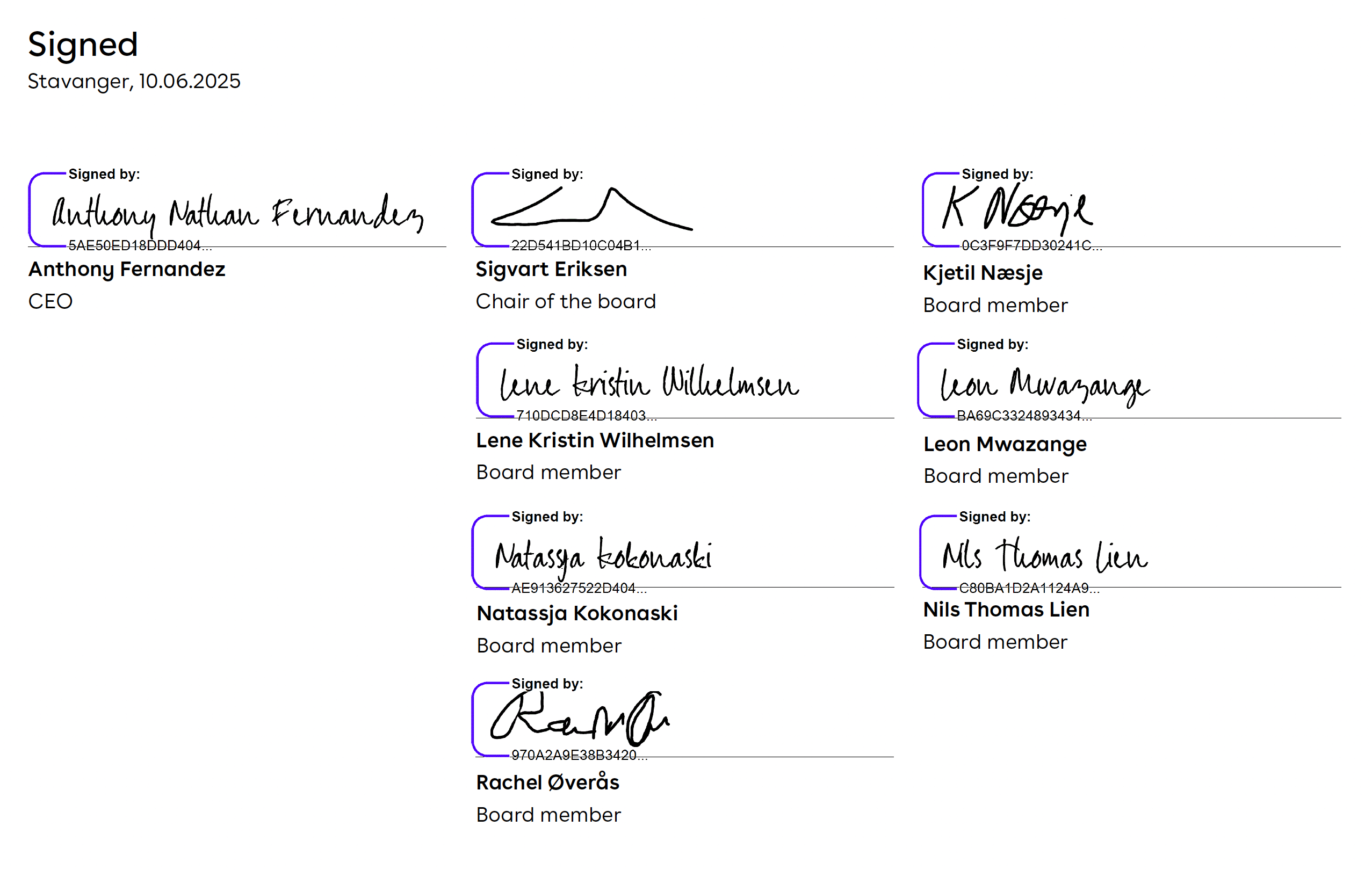Easee develops, produces and sells smart charging solutions for electric cars. The Group consists of a parent company and seven wholly owned subsidiaries:
Parent company:
Easee ASA, Norway
Subsidiaries:
- Easee UK Ltd
- EASEE Deutschland GmbH
- Easee Netherlands BV
- Easee France SAS
- Easee IP AS
- Easee Production & Sales Nordics AS
- Easee Energy Services AS
The Easee Group headquarters is in Stavanger where development work is carried out on existing and new products as well as sales, marketing and operational support functions. The subsidiaries in the United Kingdom, Germany, the Netherlands and France mainly focus on sales, marketing, delivery and customer support. The production of Easee’s products mainly takes place at the company’s subcontractors in Horten and Hadeland in Norway and Vänersborg in Sweden.


